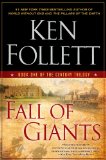A thriller about a past that never happened...but has it? C. J. Sanson's
Dominion unfolds in an alternative past but speaks to what loyalties, fears, and dreams move us to act either to secure our own safety or risk all that we have to help create a better world. By placing his characters in a past that never happened, Sanson succeeds in giving us a broader view of humanity, of men and women caught up in a historical process whose lives are shaped either by the choices they make or their responses to situations over which they have no control.
It's May 9, 1940; we enter into a meeting at 10 Downing Street in London. Neville Chamberlain has reached the end of his effectiveness as Prime Minister of England at war with Nazi Germany. Dunkirk and the disastrous British defeat in Norway have brought the country to a crisis and its leaders must decide if they will continue fighting the Nazi's; they must decide if the past foreshadows a future even more cataclysmic than the last exhausting year has been – and all the while, the memory of the carnage of the Great War looms over their decisions. Among those at the meeting are Winston Churchill, Foreign Secretary Lord Edward Halifax, and Neville Chamberlain himself. Norway is in Nazi hands; the invasion of France is imminent, and the invasion of England looms in the near future. But this is where Sanson changes history. Chamberlain asks Churchill to become Minister of Defense in a new government under Prime Minister Edward Halifax. Hoping to wield power in the new cabinet, Churchill reluctantly agrees in the spirit of public unity though he knows Halifax "...would do his best, but his heart was not in the struggle that was coming. Like so many others, he had fought in the Great War and feared seeing all that bloodshed again." So, at 4:30 p.m., May 9, 1940, the future of the world is set.
The story then moves to 1952, and Britain is under German control.
Last November, we observed the 50th anniversary of the assassination of John F. Kennedy. Many of us who remember that presidency asked ourselves - as we had asked so many times before - how the world would be different if Dallas had not happened. Moments in time make up our lives, whether as individuals or as a society, and events or decisions in those moments are essential elements creating a future. They place us on a path, like the wanderer in Frost's
The Road Not Taken who "...knowing how way leads on to way/... doubted if I would ever come back."
In 1962, American writer Phillip K. Dick published
The Man in the High Castle, based on a premise similar to
Dominion. The Allies had capitulated in 1947 to the German-Japanese Axis, and Germany and Japan had divided the United States into spheres of influence on the west and east coast with the mountain states acting as a buffer between them. Dick's understanding of the character of the American people of the time let him create a credible scenario in which a small, but determined group of Americans worked to undermine the oppression of occupation.
Similarly, Sanson, knowing the people of Britain of the 1940s and early 1950s, creates what we'd expect from war-time British citizens, an anti-fascist network of people, willing to risk their own lives for the sake of the future of the democracy they cherish. The young Queen Elizabeth and the endearing curmudgeon, Winston Churchill,
inspire these people to "Never give in - never, never, never, never, in nothing great or small, large or petty, never give in except to convictions of honor and good sense. Never yield to force; never yield to the apparently overwhelming might of the enemy." Those who thought they had no courage for resistance and no skill in exercising it, discover, in their commitment to freedom and especially to each other, what is needed to bring down the most overwhelming foe.
In times of greatest stress and danger, the mettle of a people is displayed in individual acts of great courage. And so we discover in the resolution of this exciting thriller, which is also a telling mirror on human nature. Sanson shows, in his altered history, that people are able to rise above fear, to reach for integrity, and to sacrifice their own welfare and even their lives for the common good.

![]() This review was originally published in The BookBrowse Review in February 2014, and has been updated for the
January 2015 edition.
Click here to go to this issue.
This review was originally published in The BookBrowse Review in February 2014, and has been updated for the
January 2015 edition.
Click here to go to this issue.


